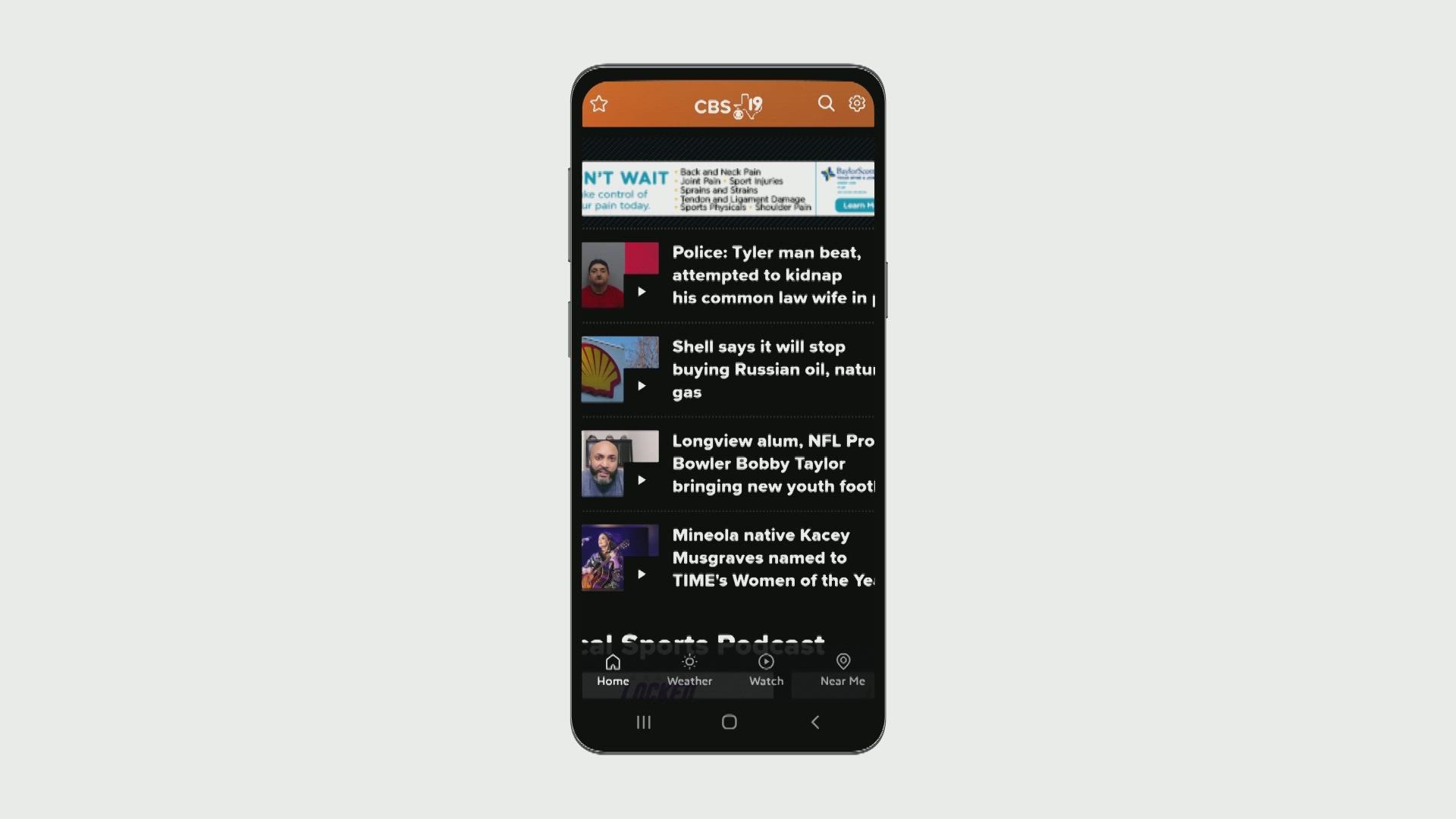TYLER, Texas — As the city of Tyler plans to improve streets, tourism and parks and prioritize public safety in the 2023-24 budget, the proposed financial blueprint also features rate increases for residents' transit, water and trash services.
On Wednesday morning, the Tyler City Council received the fiscal year 2024 budget, which totals $241.4 million -- an increase of nearly 6% from last year's total. Tyler Mayor Don Warren said this year's priorities include smooth roadways, better traffic flow, improved drainage systems, upgraded water and sewer systems and state-of-the-art tourism facilities.
According to the city of Tyler, $21 million of the budget will be invested in traffic signal improvements, street reconstruction and increasing drainage capacity using the Half-Cent Sales Tax Fund.
The public will have two opportunities to give their input on the budget by attending the city council meetings on Aug. 23 and Sept. 13 with the final adoption set for Sept. 13.
TAX RATE
This year's proposed property tax rate is 0.24792 cents, which would be a decrease from the current rate of 0.26185 cents. Due to a rise in property values in Tyler, homeowners will see an average of $112.62 annual tax increase. The values for the average home in Tyler rose by about 23%.
City officials said under this rate, property tax revenue would total about $28.2 million, making up 31% of the general fund.
TYLER TRANSIT CHANGES
Transit rates across the board will be doubling if the proposed budget is passed. Adults 12 and older will go from $1 to $2, children ages 6 to 11 will go from $0.50 to $1 and children age 5 and under will still get to ride free. Seniors (age 65 and under) and people with disabilities would also rise from $0.50 to $1.

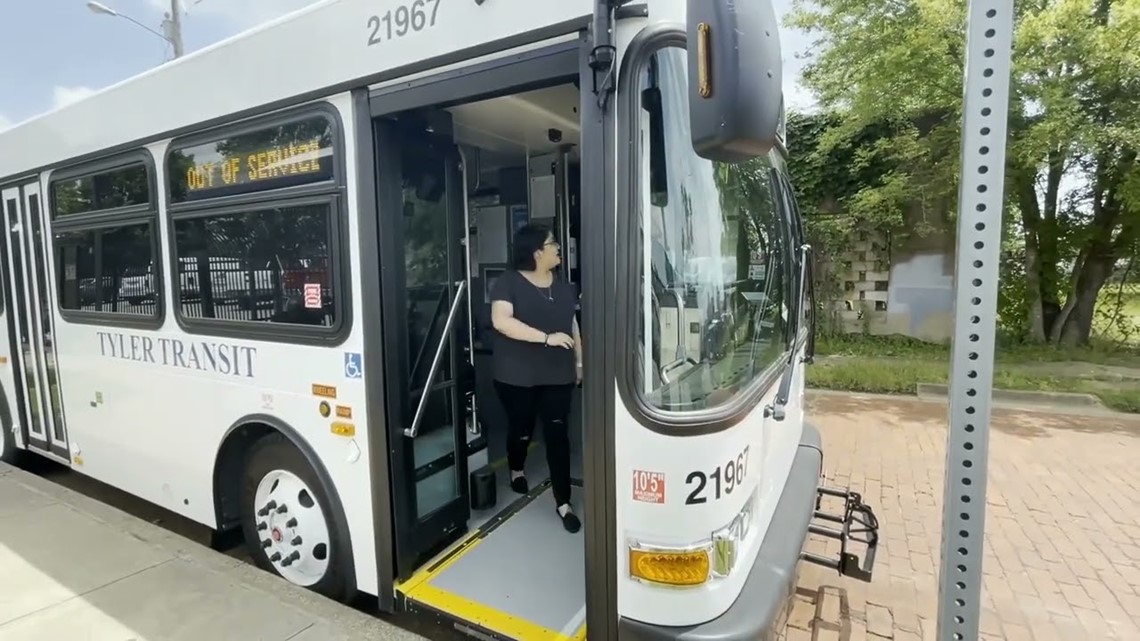
Passes will also increase in price:
- 30-day pass: $80 (from $40)
- Half fare 30-day pass: $40 (from $20)
- Student 30-day pass: $40 (from $20)
- Student semester pass: $100 (from $50)
- Regular 7-day pass: $20 (from $10)
- Half fare 7-day pass: $10 (from $5)
- Student 7-day pass: $10 (from $5)
- All-day pass: $4 (from $2)
Saturday services and the campus connect routes (stops at Tyler Junior College Main Campus, UT Tyler, and TJC West and connections to Broadway Express and Medical District) will end due to low ridership. Paratransit service on Saturday will be available for medical needs only.
WATER AND TRASH RATES
The average Tyler Water Utilities customer will see 51-cent increase in water and sewer collection.
TWU is continuing with phase two of moving into a uniform volumetric rate, meaning a person pays the same rate regardless of how much water they use. In the 2023 fiscal year budget, the city of Tyler moved from a declining rate structure (where water and sewer services are cheaper when a person uses the service more) to the uniform volumetric rate.
In August 2022, City Manager Edward Broussard said this new method promotes water conservation and equity within Tyler's water system. The uniform rate is getting phased in over a five-year period.
Officials said the city has invested over $48 million in cash toward the water and sewer systems since 2016 for reliable, high-quality water distribution even during extreme heat and drought.
Regarding the sewer service, the city of Tyler has to add a regulatory compliance fee of $6.28 for the debt on the rehabilitation of Tyler's sanitary sewer system. In 2017, the city signed an agreement with the federal government requiring $250 million go toward wastewater system improvements by April 2027.
Trash collection rates would rise by $1.85 monthly under this proposal. The city said the increase will fund "maintaining a high level of service," like twice-weekly collection and special pickups in the year.
Overall, customers will see an average increase between in $9.16 and $11.51 due to the rises in water, sewer and trash rates.
"Maintaining and improving our water and sewer systems is vital to Tyler's longevity," Broussard said. "Readying our rapidly growing community for the future means we must do the hard work today."
PUBLIC SAFETY
The budget for funds toward the Tyler Police Department and the Tyler Fire Department is set to rise by 7.93% from last year. The police will receive $36.4 million in funding, while the fire department will get $25.1 million. The budget also proposes an almost $2 million pay raise for police and fire to assist with recruiting and retention.
The city of Tyler also plans to fund two new fire engines for $1.6 million. This will help residents and businesses maintain the benefit of reduced insurance premiums, which resulted from the fire department getting an improved insurance rating in 2021.
Over the past two years, the Tyler Police and Fire Departments have both instituted in-house training academies to recruit, train and retain crew members.
STREET AND TRAFFIC IMPROVEMENT
A significant amount of funding will go toward repairing and maintaining city streets. This includes $423,500 in funding for Tyler's historic brick street repairs and maintenance, $165,000 for public alley repairs and maintenance and almost $1.5 million for the general fund street improvement.

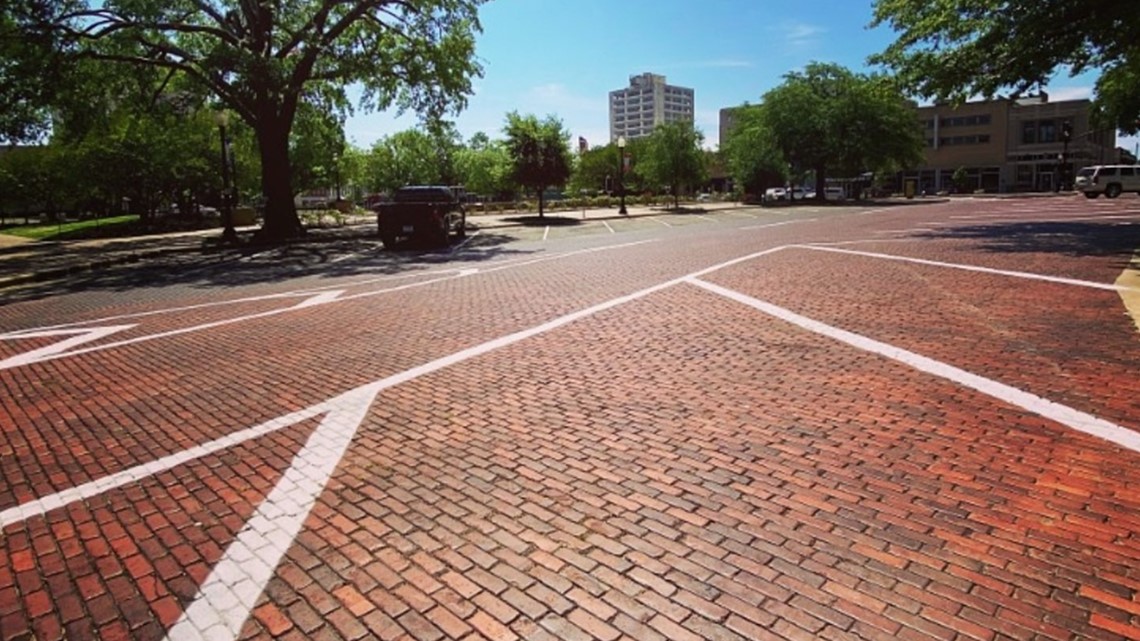
Also, $12.9 million has been allocated from the Half-Cent Sales Tax Fund to street reconstruction projects and the fourth phase of the Traffic Signalization Modernization Project, a phased plan that seeks to improve traffic flow by retiming lights at prioritized intersections.
The budget proposes city crews convert medians with trees and shrubbery into concrete-only medians to reduce maintenance costs to taxpayers in the future. The cost for this is set to be $150,000.
Just like the previous year, $200,000 is set to be allocated to remove substandard structures in the city. An additional $100,000 is planned for tree removal in anticipation of future storms.
TOURISM
A notable part of the city's tourism projects is completing the renovation of the historic Mayfair dance hall, located at 411 Fair Park Drive, that sits on the East Texas State Fairgrounds and once served as a significant concert venue for many famous musicians.
Artists who performed at the Mayfair include Elvis Presley, Dolly Parton, Willie Nelson, Jerry Lee Lewis, Johnny Cash & June Carter, Hank Williams, Bob Barker and David Allen Coe.
According to the nonprofit Friends of the Mayfair, the building was constructed in 1926. It has seen minor updates over the years but is need in of total restoration.

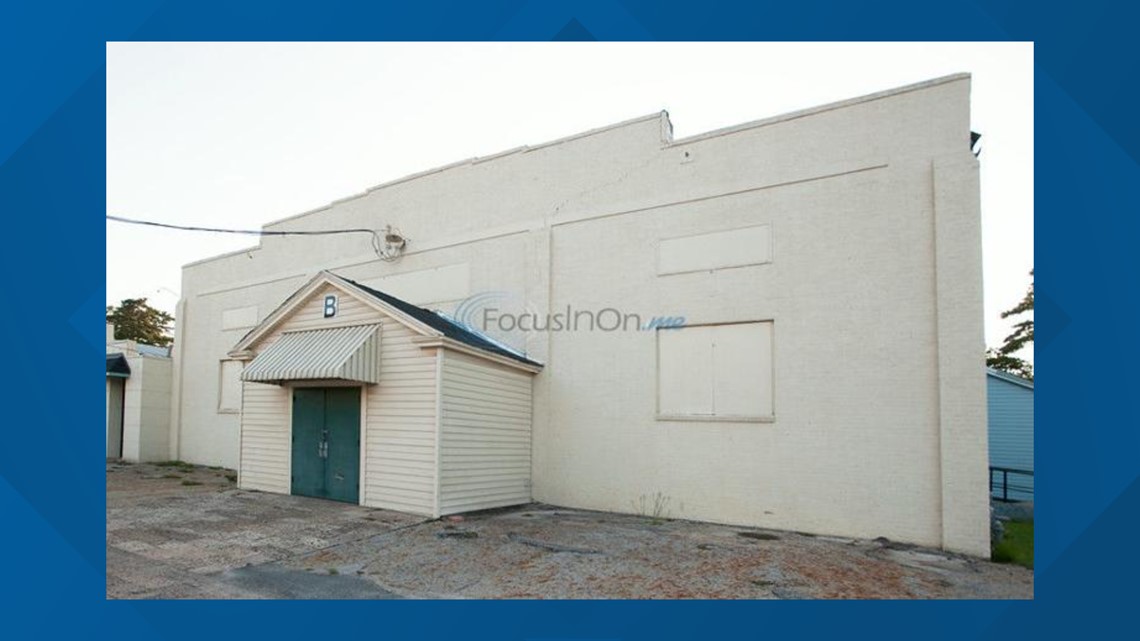
Other renovations are centered around the Tyler Rose Garden Center, including five-year phased plan to convert the rose beds from rail ties to stamped concrete, building a pergola (a shaded walkway) and updating the building's interior.
The budget also seeks to reconstruct two of Lindsey Park's softball fields with decomposed granite to drain properly in order to play safely after the rain. Three soccer fields will also get rebuilt under this proposal.
The ball field renovation will cost $72,000, while the soccer fields will cost $100,000, according to the city's numbers.


Officials want to dedicate $400,000 toward renovating W.E. Winters Park, located on Peach Avenue and south of Peete Elementary School. The park features picnic areas, a pavilion, playground, basketball and multipurpose courts and a 0.4-mile concrete walking trail.
The city is planning on reinstating a previous position into its workforce, parks tourism manager. The proposed salary and expense for the job would be $84,560.
Out of the Half-Cent Sales Tax Fund, over $672,000 would be allocated to tourism and trails, specifically for the second phase of expanding Legacy Trail.
Legacy Trail, which is 4.5 miles and opened in July 2019. The 10-foot wide concrete path runs on the eastern and western sides of Old Jacksonville Highway; running Toll 49 and continuing toward Flint, according to the city of Tyler. The website states there are possible plans to expand northward to the South Tyler Trails linking the Rose Rudman Recreational Trail.
MOWING ROOMBAS AND AN ARTIFICIAL CHRISTMAS TREE?
Under the tourism funding, this year's budget looks to purchase an artificial Christmas tree for the downtown square to be used during the holiday season. Traditionally, the city has brought in a large real Christmas tree annually from a local tree farm.
The cost for this artificial tree to potentially use in place of a real tree would be $30,000.

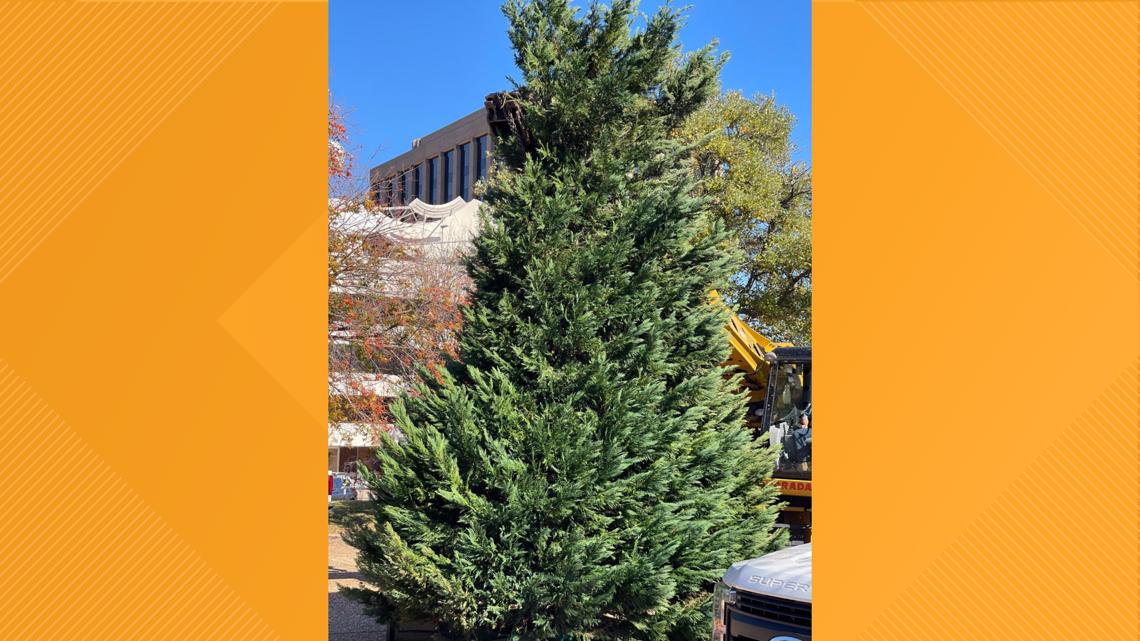
A unique potential expenditure in the parks budget is automated lawnmowers at a cost of $15,000. According to the city, the automated mowers work similar to a robot vacuum cleaner and will be placed in contained areas like baseball and softball fields.

